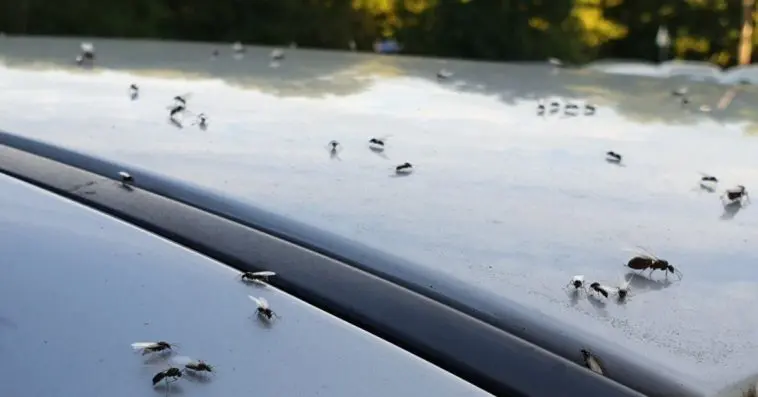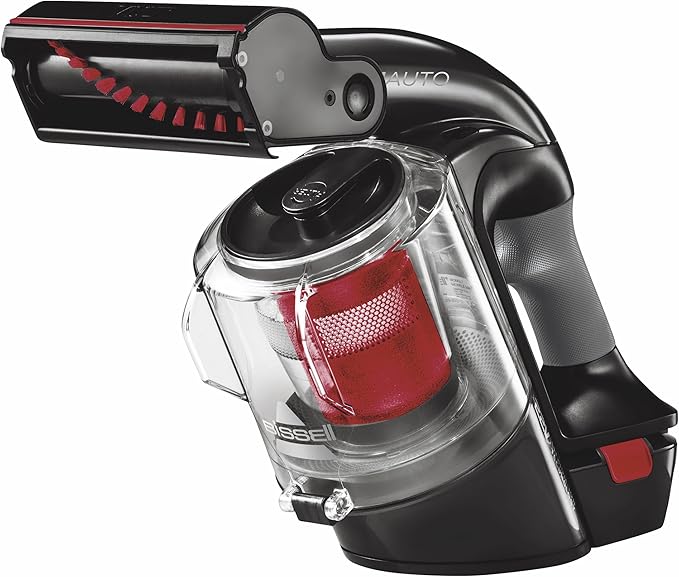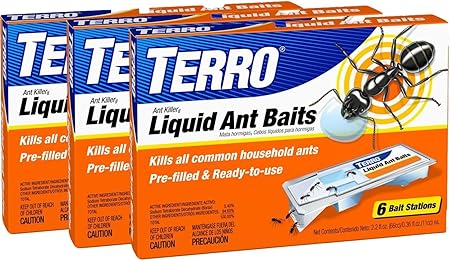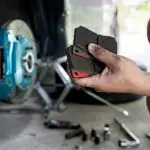While I and my partner love the long rides, the kids do not, and one way to ensure that they stay put is having plenty of delectable snacks on the go.
Although it does not sound like much, this is indeed a recipe for disaster.
My car is sure to be littered with crumbs and food particles, which attracts critters and the most commonly, ants. If you are facing the same dilemma as I, give this a read.
If you are looking for ways to get rid of ants in your car, here’s how you do that. Ant infestations are not something to take lightly.
Once the ants identify the car as a source of food, they set their nest and make the work difficult for you.
The best way is to tackle the issue right when it starts:
- Clean your car of all foods
- Vacuum the car from top to bottom
- Set the ant traps and use ant spray
- Do not miss treating the tires
- Park your car somewhere else until you have treated the garage as well
The first thing to check for when it comes to ant infestation is ant hills. If I am parked on an anthill, you can be sure that my car will be infested with ants.
It is also possible that they stumbled on my vehicle when foraging for food.
Another unfortunate yet important reason is that ants have identified that my car is an important source of food.
If that is the case, I have to be thorough and disinfest my car starting with a thorough cleaning.
TABLE OF CONTENTS
Types Of Infestations
There is a good reason why adults always told you not to eat in the car. Ant infestation is a thing and a very unpleasant surprise at that.
Before getting into cleaning your car, understand how your car was infested in the first place.
Ant infestations could be:
- Accidental infestation
- Setting up a nest
If it is the former, I need not worry since the ants likely came across my car when in search of food.
Or it might also be that I parked my car on an anthill or somewhere close to a foliage-filled with ants.
In this case, once the ants find that there is nothing interesting, they will leave my car on their own.
The most serious and a thing for concern is when ants discover that my car has a healthy supply of food, in which case they might attempt to set a nest.
Once this happens, you are in for a world of pain getting rid of them. Take action before they take residence or better yet, do not let them in your car.
Determine The Type Of Ant
If you are looking at a situation where the ants have started setting up permanent residence, it is essential that you identify the type.
The reason being, not all treatments work the same when it comes to ants. Knowing more about these pests makes your life easier in the long run.
In the United States, the most common kind of ants found is the crazy ants and carpenter ants.
They are pretty ordinary and can be seen foraging for food just about everywhere.
But depending on the location, it may also be the harmless black ants or even fire ants.
Here are a few varieties that are dangerous to your car and also to your home:
- Argentine Ants: Since its accidental introduction from South America, the argentine ants have earned its name as being the common invasive species in the US right now. It does not sting humans or damage parts, it spreads quickly.
- Acrobat Ants: Found mostly in the Eastern US, the acrobat ants earn their name from their strange behavior. Their stings are pretty vicious when they feel threatened.
- Raspberry Crazy Ants: Another imported species from Argentina and Brazil, the crazy ants have been wreaking havoc since 2002 when scientists discovered the species in the US.
What makes it dangerous is its ability to chew through the wire insulation and nasty when provoked. - European Fire Ants: Classified as the most invasive species, the fire ants pack a punch with their bite.
When provoked, the ants tend to swarm and inflict excruciating stings. They also chew wire insulation in vehicles and homes. - Asian Needle Ants: Found outdoors, the ants primarily reside in moist areas. They are very dangerous to humans and can cause anaphylactic shock.
How To Get Ants Out Of Your Car
Once you find ants in your car, be sure that there are millions close by.
Even if there is a nest in your car, it is probably a satellite colony meaning that it is not the only colony in the vicinity.
Until you eradicate the ant problem, you can get repeated invasions.
Move The Car
It’s possible that you have parked your car on an anthill or somewhere in a woody area infested by ants.
It may also be that you came across scout ants foraging for food; in that case, be sure that there is an ant colony nearby. Also, ants can establish satellite colonies with worker ants and no queen.
If you have parked your car in an outdoor area, you can easily move your car elsewhere, and most ants will leave as long as they don’t find anything to feed on.
But if you parked the car in your property, dealing with the parent colony seems to be the better option.
The reason being, ants release trails of chemicals known as pheromones which they use to direct other ants to your location. Move your car far away from their range to control the invasion.
Clean The Car
Provided that you regularly vacuum the car, ants presumably found food particles in your car.
It may be food scraps, discarded food wrappers, or even a split drink. What may seem like nothing is a source of nourishment for them.
These are sufficient to sustain their colony since they need the tiniest food particle, and that’s why I emphasize cleaning spills and discarding empty food packets.
The same goes for used cups, soiled tissues, just about anything that has a trace of food on them.
Clear away anything that has no place in your car and make sure you are thorough.
Pay attention to tight spaces, pouches, crevices, seat covers, etc.
Use A Car Vacuum
While you were thorough in the last step, trust me and use a vacuum anyway. A good one never misses anything, even a small speck or fragment you may have missed.
Run a small handheld vacuum over the surface to clean it up. You can also run it over ants to pick them up.
- Do not in between seats, armrests, floor, etc.
- Remove your floor mat and clean underneath them.
- Also, run the vacuum over the floor mat and the underside of it just to be thorough.
- The small nooks in your dashboard also host ants. So, do yourself a favor and vacuum your dash too.
Wash The Exterior
Another step that makes a lot of difference is washing the exterior of the car. Ants can smell out food scraps even from outside a car.
So, a small thing like shampooing the car can erase the smells that attract the ants. You can opt for professional work or even wash at a self-service car wash.
Ants are tiny creatures, so make sure you don’t miss the wheel wells, undercarriage, and under the hood (engine).
Use a soft cloth and window cleaner to wash the interior of the door and windows.
Again, pay attention to the crevices. If need be, wipe down the cup holders, seat belts, etc., anywhere you think might have traces of spill with a wet cloth.
Treat The Tires
The only way for the ants to access your car is via the tires, which is pretty much the one and only part that touches the ground.
By taking away this point of access, you are denying the ants the only way it can get into the car.
Treat the tires chemically with a pesticide or an ant spray, and it will help prevent the ants from entering the car.
Apply a layer once a week to keep them out. While this is not a solution to the current problem, it will help to stop the issue from escalating. And also, avoid future infestations.
Treat The Car
This is the final step to seal the deal. Treat the insides of the car to kill the leftover ants.
Do not use pesticides since the insides of the car is a small closed space hence not healthy. But what you can use is ant traps.
Ant traps include poison that attracts the ant and kills when ingested. They are small enough that you can place it under your car seat, boot, or even your glove compartment.
- Buy at least 3 of them and spread them across the vehicle.
- Go for odorless traps as they do not make the car stink of chemicals.
- Keep an eye out and replace it when it is full of ants.
- Store them away from children so that they are not exposed to the harmful chemicals.
This video is really helpful to watch:
Frequently Asked Questions
Q1: I Do Not Want To Expose My Family To Chemicals. Are There Any Home Remedies?
Not everyone wants to use chemicals and pesticides the first time around. If your infestation is not as severe, you can opt for home remedies, as they are non-toxic.
Here are some fairly simple options you can go for:
- Line your car’s floorboards with double-sided tape or place the sticky tape on cardboard and place it on the floor mat.
- Ants are averse to salt, pepper, and mint. Take to placing them in the car and watch the ants scurrying away.
- Diatomaceous earth strips the pests of all moisture, dehydrates, and finally killing them. Ants avoid it at all costs. Sprinkle a few on the doors and any other entry point.
While it is toxic to ants, it is not so for humans. Let it sit for 24 hours. Before taking the car out, wipe the dirt with a wet washcloth. - White vinegar also works well. Mix equal amounts of white vinegar and water; Sprinkle them on the entry points.
Q2: Can Ants Damage My Car?
While your generic ant does not cause any harm, crazy ants and fire ants can chew through wire insulations causing untold damage to the car.
It can cause issues to your car dashboard and engine. Hence, infestations of any kind must be treated with urgency and care.
Q3: Can I Set Off A Fogger In My Car?
Do not use pesticides or insecticides, including a fogger in your car. Not only are they dangerous, but they are also smelly and have an unpleasant odor.
Apart from that, you will be dealing with the residues from the fogger every time you get in the car.
The only way to prevent a pest invasion is to keep the car clean and vacuum at least once a week.
Conclusion
Ants, though tiny, are pretty annoying unless you parked the car atop an anthill infestation means your car is littered with the spill, food particles, and scraps.
The first step is to identify the ant since the treatment might differ based on the kind.
But before that, make sure you follow the below steps:
- Park the car in a different place.
- Clean the car thoroughly and pick any trash or organic material.
- Wash the exterior to erase any lingering smell of food particles.
- Treat the car tires with pesticide spray to deny entry into the car.
- Treat the cabin with ant traps.
You can also go for natural remedies if the thought of pesticides gives you shudders of horror.
- Line the floor mates with double-sided tapes.
- Ants hate salt, pepper, and mint. Sprinkle them in your car.
- Ants go out of their way to avoid diatomaceous earth. Though not toxic to humans, it is to ants.
Ants are resilient creatures, and once they infest, they will find a way to come back unless you are depriving them of a good meal.
So, better keep your car clean. Contact a professional in the case of repeated infestations.








